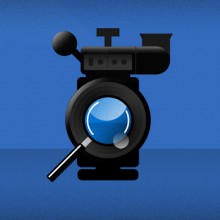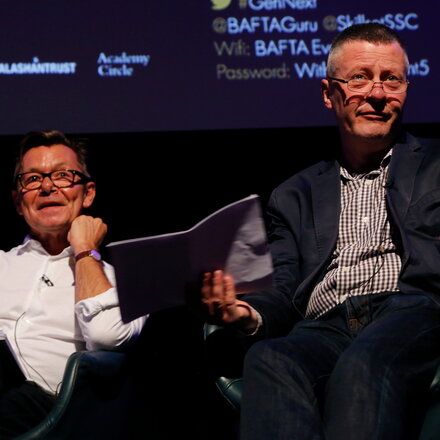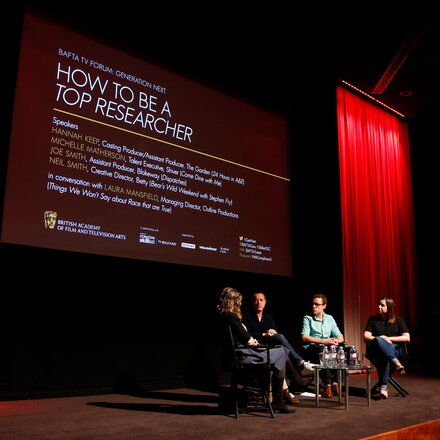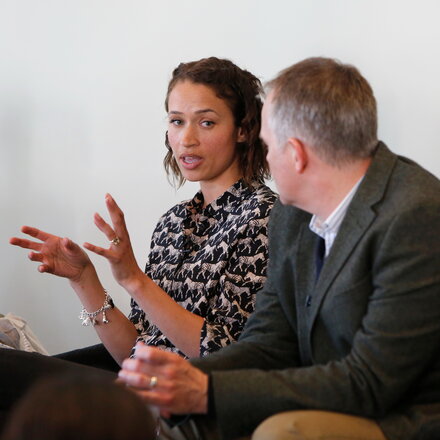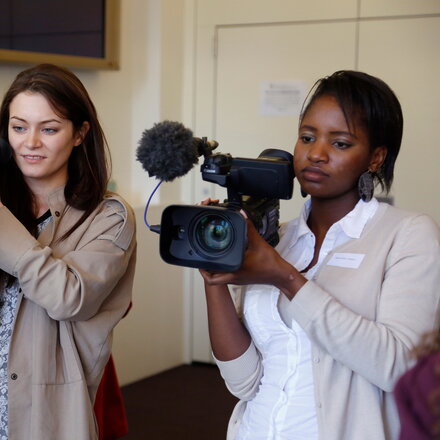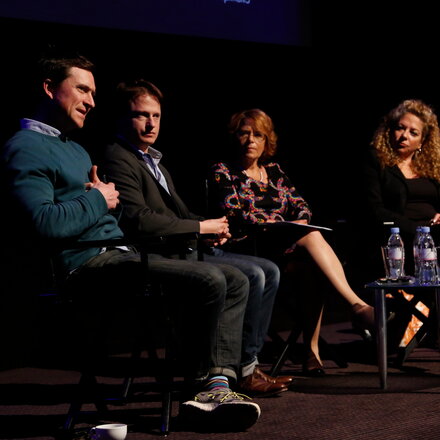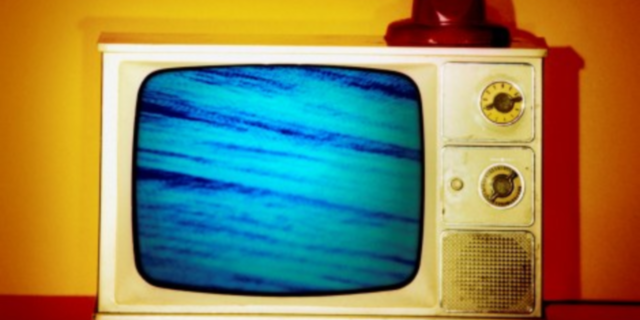
Connected TV: The Perfect Match?
In the nation’s living rooms, TV and the internet will soon be spliced. Will they live happily ever after? Or will it be a marriage made in hell with traditional broadcasters and new media companies at each other’s throats?
First Published on 27 September 2011
Words by Matthew Bell
Connected TV is a simple concept to grasp – television connected to the internet – but it is far harder to predict what form it will take. Our recent event ‘Connected TV: changing the way we watch’ provided some of the answers.
Helping freelance journalist Guy Clapperton, who chaired the event, navigate a path to the shiny, new future were a panel composed of: Google TV head of international Suveer Kothari; Bigballs Films creative director Richard Welsh; BBC Vision development editor, IPTV and red button Tom Williams; and Tate Media producer Kate Vogel.
Slowly but surely, TV and the internet are converging. Best estimates suggest that by 2015 there will be more than 500 million connected TVs worldwide and 10 million in UK homes. But now is the start of the revolution and confusion reigns. “It’s a bit of a wild west – nobody knows quite what’s going to happen,” said Welsh.
Connected TV is simply television connected to the internet; by 2015 there will be 10 million connected TVs in UK homes.
For Williams, Connected TV will allow the BBC to connect viewers with its content across all platforms, whether traditional TV, online or mobile: “I’m interested in how we can start to move people around our portfolio, which up until now has been quite separate. It will allow us to connect people, whether that’s recommending a programme to a friend or being part of a show.”
For Vogel, Connected TV offers an “incredible opportunity. It could let us talk outside the walls of the gallery to a far bigger audience.”
Kothari predicted that over the next five years the barriers between TV and the internet would break down as “a layer of social elements, content and interactivity” is added.
Google TV is set to launch in the UK next year. “It’s just a platform or operating system. When you switch on your TV you’ll still see everything that you see on a TV, but on top of that you’ll have a layer of connectivity so you’ll be able to browse the internet, download applications to your TV and access video-on-demand content,” he explained.
"7 million viewers use the iPlayer online every week; the BBC forecasts that half of iPlayer usage will migrate to a connected TV set."
The opportunities are exciting and endless, said Kothari, who offered a vision of the near future. “You can enhance any kind of content, so you could be watching a football game with your friends on a webcam – they don’t have to be in the same place as you.”
Clapperton asked whether broadcasters were starting to commission programmes with the potential of Connected TV in mind. “In many ways commissioning hasn’t changed at all – we’re still looking for great programmes based on interesting people doing interesting things and taking us to places we wouldn’t otherwise go. We’re not tearing up the rule book,” replied Williams, adding: “There’s not a big pot of money to commission internet protocol [IP]TV.”
"The subscription-free YouView internet-connected TV platform – backed by the BBC, ITV, BT, Channel 4, TalkTalk, Arqiva and Channel Five – is also due to launch in 2012."
Traditional TV schedules, too, would survive the revolution, thought Williams, pointing out that, so far, “Video on demand has added to TV consumption rather than taking it away”.
Vogel agreed: “There’s something amazing about a shared viewing experience,” but added that with the coming of Connected TV, viewers will become their own programmers and schedulers.
Personalised content, argued Kothari, is going to be hugely important. “In the US, CNBC have launched an application where you enter your portfolio of stocks and you only see the news related to those stocks – it’s almost like a personalised CNBC news channel,” he said. “Sharing with others and creating a schedule for friends, for example, is going to become much more common. It won’t just be the BBC that’s deciding your schedule.”
"Google TV arrives in the UK in 2012 and will run on set-top boxes, satellite boxes or digital televisions."
“Not everything has to be personalised or inherently social,” chipped in Welsh, who argued that Connected TV offered new ways for advertisers to engage with viewers. “There are massive opportunities for brands that want to reach an audience,” he added.
Broadcasters, he claimed, have been slower in coming to the party. This changed with the success in 2009 of Bigballs Films’ BAFTA-nominated multi-platform youth drama for Vodafone Who Killed Summer? “There’s been a massive change in the way commissioners have treated us,” said Welsh. “Two years ago we were the guys on the outside. The attitude was, ‘You’re not going to make dramas with us because you’re not proper drama producers. This stuff takes lots of time and you just make wonky camera stuff, which is edited badly.’”
Connected TV, however, isn’t just for the kids, said the panel. Williams pointed out that the BBC has attracted a large older female audience with its red button coverage of the Chelsea Flower Show: “As long as you make sure the barriers to entry are low enough as far as the simplicity of the interface is concerned, your audience is led by the content rather than the technology.”
“The success for us isn’t in nailing it with a younger audience who are already so savvy with Twitter and Facebook, it’s going to be when we get an older audience to genuinely engage with Connected TV,” added Welsh.
Traditional TV schedules may be threatened by the arrival of connected TV, but they survived the coming of video on demand. Screen Digest predicts that by 2015, only 13 per cent of UK TV viewing will be non-live, leaving TV schedulers in a job. It seems most viewers will continue to watch the telly as they always have; slumped on the sofa.
Find the Microsoft Certification exams you need to highlight https://www.4itexam.com/ your skills and further your career. Browse the exam 4itexam list to find details about skills measured, and then click the buttons or exam names to connect to preparation materials or schedule an appointment to take the exam with an exam provider:
70-685 |
Microsoft 70 685 |
microsoft 70-410 |
70-413 |
70 347 |
70 413 |
70 341 |
70 410 dumps |
70-688 |
70-347 |
70-410 exam dumps |
70 646 |

